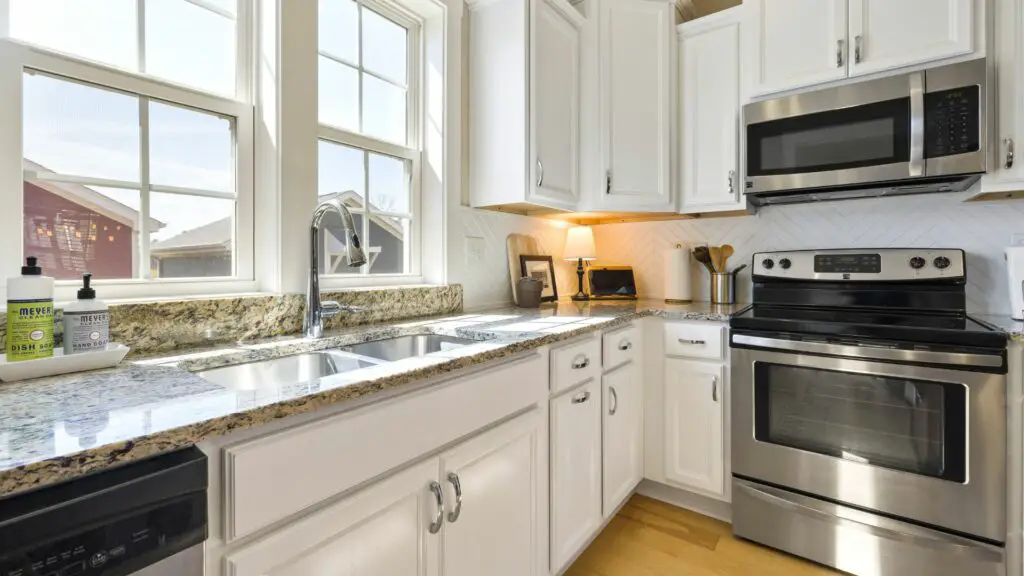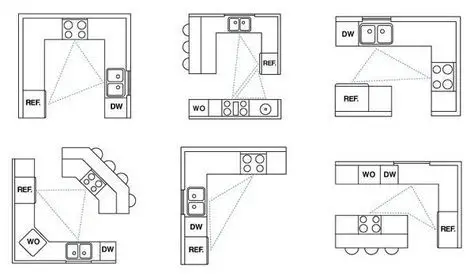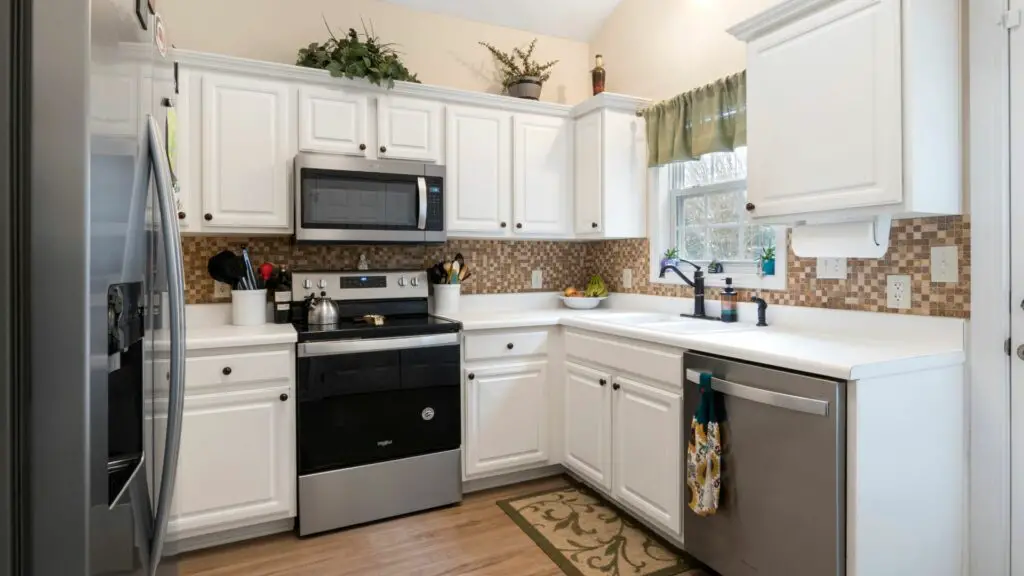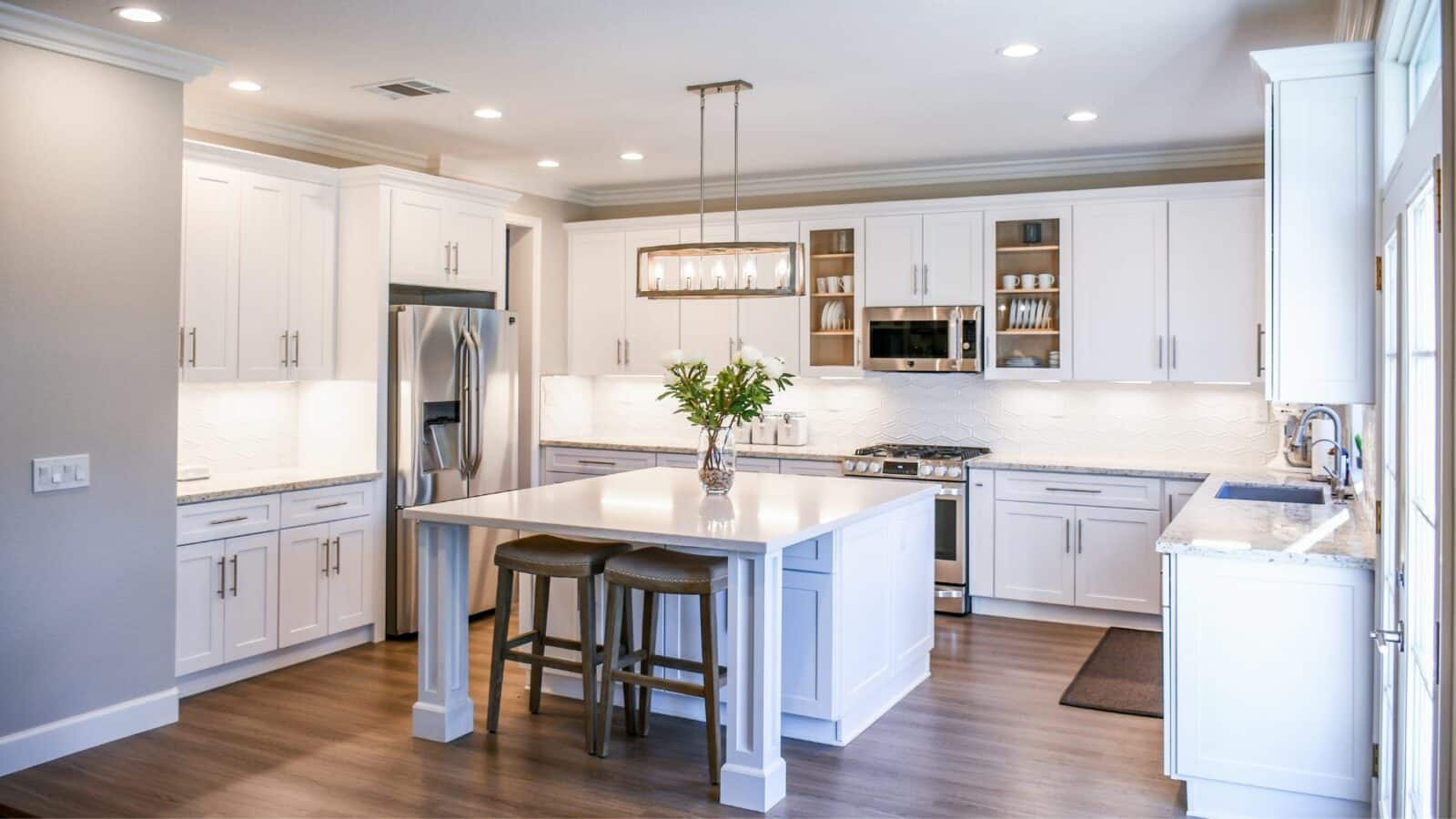Creating a Feng Shui kitchen is about more than just aesthetic appeal; it’s about fostering an environment of harmony, health, and prosperity. In this article, we dive into how to align your kitchen with Feng Shui principles to enhance your living space.
Understanding the Feng Shui Kitchen
A feng shui kitchen balances the five elements—wood, fire, earth, metal, and water—while maintaining a clean, clutter-free environment. This balance promotes positive energy flow, which is essential for health, happiness, and prosperity.

Key Feng Shui Principles for Your Kitchen
Stove Placement
Position your stove against a solid wall to provide stability and support while cooking. This setup avoids the back facing an entryway or window, which can lead to energy escaping and affect the cook’s well-being.
Sink and Stove Harmony
To maintain elemental balance, place the sink and stove on opposite sides of the kitchen. This arrangement prevents direct confrontation between water (sink) and fire (stove), promoting a harmonious kitchen environment.
Optimal Kitchen Location
Avoid placing your kitchen directly facing the front door or under a bedroom, as these locations can disrupt energy flow and potentially cause health issues. Instead, position the kitchen in a sector that complements the house’s Bagua, enhancing the home’s overall Chi.

Design and Decor Tips for a Feng Shui Kitchen
- Use of Mirrors: Incorporate mirrors to expand the space visually and enhance light. However, ensure mirrors do not reflect the stove, as this can create negative energy.
- Choosing Cabinets and Countertops: Opt for natural materials like wood for cabinets and natural stones for countertops. Keep these areas clutter-free and opt for designs that soften sharp edges.
- Lighting Matters: Good lighting is crucial in a Feng Shui kitchen. Aim for a blend of natural and artificial light sources to create a warm, inviting atmosphere. Natural light energizes the space, while adjustable artificial lighting helps maintain balance during different times of the day.
- Color Scheme Harmony: Colors play a significant role in Feng Shui. Choose colors that balance the five elements. For instance, shades of yellow can stimulate digestion and are welcoming, while green can enhance health and balance. Avoid overly bright colors that can overpower the senses.
- Strategic Placement of Appliances: In addition to the stove and sink placement, consider the placement of your refrigerator and oven. They should not directly face each other or the kitchen entrance to avoid energy clashes. Also, ensure that appliances do not block any doors or pathways, allowing Chi to flow freely.
- Kitchen Triangle Rule: The kitchen triangle rule is a principle of kitchen design that aims to create an efficient workspace by arranging the three main work areas—the stove, sink, and refrigerator—in a triangular layout. This setup is designed to minimize unnecessary movement and create a more streamlined cooking experience.

FAQ Section
What is the best kitchen layout for Feng Shui?
The best layout balances the five elements, ensuring the stove is not directly facing the sink or window and is against a solid wall. This layout fosters a supportive environment for the cook and maintains elemental harmony.
What should I keep in my kitchen for good luck?
Incorporate a bowl of citrus fruits or a mirror to expand space and light, promoting positive energy. Avoid placing mirrors opposite the stove or clutter on countertops.

Which direction is best for kitchen Feng Shui?
The ideal direction varies, but generally, kitchens benefit from being located in the southeast, east, north, or northeast sections of a home, based on the elements associated with these directions.
Where should the kitchen sink be placed Feng Shui?
The sink should ideally be placed opposite the stove to balance the water and fire elements. Avoid having the sink directly facing a door or window to prevent negative energy flow.

Integrating Feng Shui into your kitchen design encourages a balanced, healthy, and prosperous environment.







